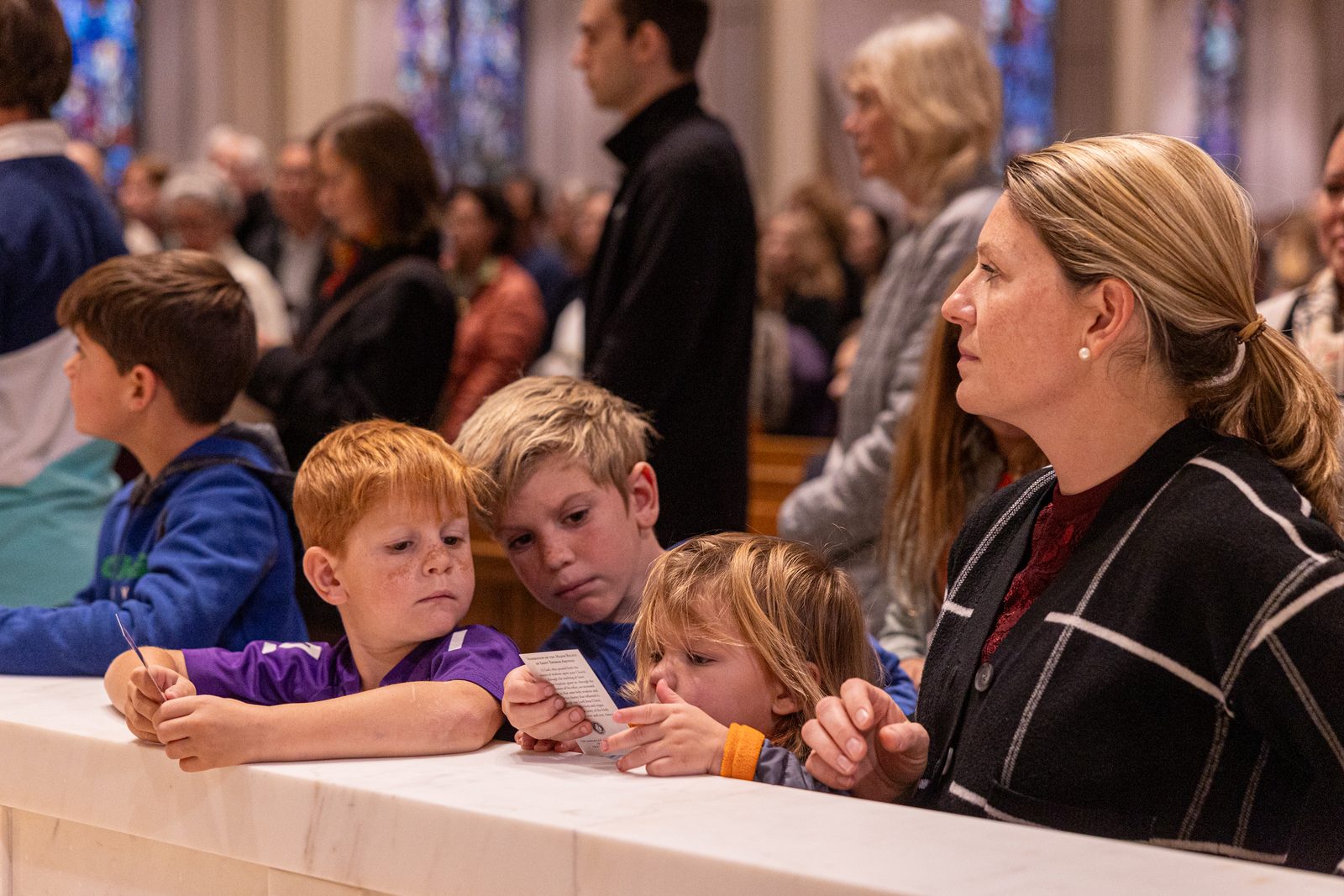On Nov. 29, a relic venerated as the skull of St. Thomas Aquinas opened its three week travel across the United States with a Mass celebrated by Cardinal Wilton Gregory at St. Dominic Church in Washington, D.C. The events connected to the relic are part of a wider celebration of St. Thomas Aquinas, with last year marking the 700th anniversary of his canonization, this year the 750th anniversary of his death, and next year the 800th anniversary of his birth.

Born in Roccasecca, Italy in 1225, St. Thomas Aquinas studied for the priesthood at Monte Cassino before joining the recently formed Dominican order. Aquinas soon became one of the most prominent intellectuals in the church with his treatises on theology, law, philosophy and numerous other topics. He died on March 7, 1274, in Fossanova, Italy.
St. Thomas Aquinas was canonized by Pope John XXII in Avignon on July 18, 1323. Pope Pius V declared St. Thomas Aquinas as a Doctor of the Church on April 15, 1567 and placed his feast as equal to the four Latin Fathers of the Church – St. Ambrose of Milan, St. Augustine, St. Jerome, and Pope Saint Gregory I. With this distinction, St. Thomas Aquinas is sometimes called the “Angelic Doctor.”
In 1369, St. Thomas Aquinas’s body was interred at the Dominican Convent of Toulouse, the city where the order was founded. Another skull thought to be of St. Thomas was found in Fossanova in 1585, and both relics are being allowed to be venerated until forensic and DNA tests are completed. The trip to the United States marks the first time the skull of St. Thomas Aquinas has been brought to the Americas. In Washington, D.C., where the relic began its stops in the United States, The Catholic University of America is one of the major centers of Thomistic learning.


Cardinal Gregory’s Mass started at St. Dominic’s with the church filled to capacity. Before the Mass, a woman in the congregation mentioned that she had started reading the works of St. Thomas Aquinas and was struck by the power of his words. She said his writing on the centrality of the Eucharist is especially meaningful for today’s Catholics. St. Thomas Aquinas was commissioned by Pope Urban IV to compose the liturgical text for the newly created feast of Corpus Christi.
In his homily, Cardinal Gregory focused on the Catholic tradition of honoring the dead and on the legacy of St. Thomas Aquinas. While touching on the saint’s intellectual gifts, the cardinal underscored the universal reach of St. Thomas Aquinas, and how his teachings can bring people closer to God.

After the Mass, hundreds of people lined up to venerate the skull and other major relics of St. Thomas Aquinas, kneeling to offer prayers. The relics were available for veneration for six hours at the church. Solemn vespers held at St. Dominic’s Church later that afternoon were followed by night prayer, and the visit of the relics to the church concluded with a Marian procession.


The visit of the major relics of St. Thomas Aquinas to the nation’s capital were sponsored by St. Dominic Church, the Dominican House of Studies and the Thomistic Institute. St. Dominic Church is staffed by members of the Dominican order. The Dominican House of Studies is a seminary for the Order of Preachers serving the Province of St. Joseph. The Thomistic Institute is dedicated to promoting Catholic truth in the contemporary world by strengthening the intellectual formation of Christians at universities, in the workplace and in the Church, and promoting a deeper understanding of St. Thomas Aquinas’s teachings and their relevance to modern life through conferences, lectures and online resources.
On Nov. 30, the veneration of the skull of St. Thomas Aquinas and the other major relics associated with the saint continued at the Dominican House of Studies in Washington, D.C., beginning with the reception of the relics, solemn lauds, and a Votive Mass of St. Thomas Aquinas.
At the Dominican House of Studies, Dominican Father Gregory Pine preached on the saint’s legacy, saying, “…We look to St. Thomas for his doctrine. We look to St. Thomas for his holiness. We pray by his skull as we sit at his feet and so we come for intercession, because St. Thomas Aquinas is poised to beseech God for the grace of wisdom and for the grace of charity that He might bestow it all the more richly on us… …to minds weighed down with sorrow and difficulty, God metes out angelic medicament through the Angelic Doctor.”
Father Pine concluded by noting, “God is glorious in his saints. God is glorious in St. Thomas Aquinas. He intends to be glorious in you. St. Thomas interceding, so ask for wisdom, ask for insight, ask for healing, ask for growth, ask for desire, ask for love. If you lack the words, fear not, St. Thomas will lend you his. Better still, he’ll lend you God’s.”
The relic of St. Thomas Aquinas will be venerated at St. Thomas Aquinas Parish in Charlottesville, Virginia, on Dec. 2; at Providence College in Rhode Island on Dec. 4; at St. Gertrude Priory in Cincinnati on Dec. 6; St. Patrick Priory in Columbus, Ohio on Dec. 7-8; at St. Louis Bertrand Parish in Louisville, Kentucky on Dec. 10; at St. Rose Priory in Springfield, Kentucky, on Dec. 12; at St. Vincent Ferrer Parish in New York City, on Dec. 14; at St. Patrick Parish in Philadelphia on Dec. 16; and at Saints Philip and James Parish in Baltimore on Dec. 18.












